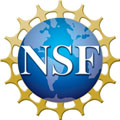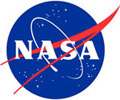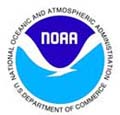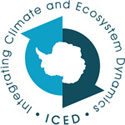On This Page:
This Ocean Carbon and Biogeochemistry (OCB) scoping workshop in Princeton, New Jersey, will focus on carbon cycling and marine ecosystems in the context of climate variability in the Southern Ocean. The Southern Ocean plays a critical role in the global climate system owing to its unique physical, biogeochemical, and ecological features. The region is undergoing substantial changes in response to climate trends and variability, and future changes are expected to exert substantial impacts on biogeochemical cycles and ecosystem processes of the Antarctic. Despite increased efforts to understand these processes, significant discrepancies still exist between models and observations, and a number of key processes remain poorly quantified. There is a clear and increasing need to develop a coordinated approach that advances our understanding of climate variability in the Southern Ocean and its implications for ecosystem dynamics and biogeochemical cycling.
The overall objective of this Scoping Workshop will be to facilitate interaction between the physical, biogeochemical, and ecosystem research communities to develop research strategies to resolve current limitations, gaps and discrepancies in our understanding and prediction of the Southern Ocean ecosystems, biogeochemical cycles and carbon uptake. More specific goals are:
1) to provide a critical overview of recent advances in the scientific understanding of the Southern Ocean
2) to build a collaborative Southern Ocean community across multiple disciplines
3) to identify key research questions of scientific significance
4) to formulate implementation plans for collaborative research in the Southern Ocean.
To this end, the steering committee will strive to achieve a balance among participants from a wide range of OCB-relevant communities in all areas of oceanography, including modeling and observational communities. It is envisioned that plenary talks will contribute to the following topics:
1) Marine Food Webs & Ecosystems
2) Biogeochemical Cycling & Carbon Production/Export
3) Air-sea fluxes
4) Climate Dynamics
5) Circulation & Sea-ice
6) Present & Future plans, and relationship to other international programs (ICED, SOOS, CCAMLR, IMBER).
Breakout group discussions will be designed to provide integration across the general topics, and will complement the plenary presentations.
Facilities at Princeton University will limit the meeting size to approximately 75 participants. The committee welcomes participation from scientists of all career stages and members of the international science community. We especially encourage the attendance of those who might represent larger groups or programs.
Steering Committee
Workshop Steering Committee
Curtis Deutsch, University of California at Los Angeles
Eileen Hofmann, Old Dominion University
Taka Ito, Colorado State University
Nikki Lovenduski, Colorado State University
Joellen Russell, University of Arizona
Jorge Sarmiento, Princeton University
Walker Smith, College of William and Mary
Pete Strutton, Oregon State University
Relevant Publications
Atkinson, A., et al., 2004: Long-term decline in krill stock and increase in salps within the Southern Ocean, Nature, 432, 100-103.
Bishop, J. K. B., and T. J. Wood (2009), Year-round observations of carbon biomass and flux variability in the Southern Ocean, Global Biogeochem. Cycles, 23, GB2019, doi:10.1029/2008GB003206.
Böning, C. W., A. Dispert, M. Visbeck, S.R. Rintoul, and F. Schwarzkopf, 2008: Response of the Antarctic Circumpolar Current to recent climate change. Nature Geoscience, doi:10.1038/ngeo362.
Boyd, P.W., S.C. Doney, R. Strzepek, J. Dusenberry, K. Lindsay, and I. Fung, 2008: Climate-mediated changes to mixed-layer properties in the Southern Ocean: assessing the phytoplankton response. Biogeosciences, 5, 847–864, 2008. http://www.biogeosciences.net/5/847/2008/bg-5-847-2008.html
Boyd, P.W. and T.W. Trull, 2007: Understanding the export of biogenic particles in oceanic waters: Is there consensus? Progress in Oceanography, 72 (4), 276-313.
Comiso, J.C. and F. Nishio, 2008: Trends in the sea ice cover using enhanced and compatible AMSR-E, SSM/I, and SMMR data, J. Geophys. Res., 113, doi:10.1029/2007JC004257.
Fyfe, J.C. and O.A. Saenko, 2006: Simulated changes in the extratropical Southern Hemisphere winds and currents, Geophys. Res. Letters, 33, L06701, doi:10.1029/2005GL025332.
Gruber et al., in press: Oceanic sources, sinks and transport of atmospheric CO2, Global Biogeochem. Cycles, doi:10.1029/2008GB003349.
Kwok, R. and J.C. Comiso, 2002: Spatial patterns of variability in Antarctic surface temperature: connections to the Southern Hemisphere Annular Mode and the Southern Oscillation, Geophys. Res. Letters, 29, doi:10.1029/2002GL015415.
Le Quéré, C., et al., 2007: Saturation of the Southern Ocean CO2 Sink Due to Recent Climate Change, Science, 316(5832), 1735-1738.
Lovenduski, N.S., et al., 2007: Enhanced CO2 outgassing in the Southern Ocean from a positive phase of the Southern Annular Mode, Global Biogeochem. Cycles, 21, GB2026, doi:10.1029/2006GB002900.
Lovenduski, N.S., et al., 2008: Toward a mechanistic understanding of the decadal trends in the Southern Ocean carbon sink, Global Biogeochem. Cycles, 22, GB3016, doi:10.1029/2007GB003139.
Marinov, I., et al., 2006: The Southern Ocean Biogeochemical Divide, Nature, 441, 964-967.
Marshall, G.J., 2003: Trends in the Southern Annular Mode from Observations and Reanalyses, J. Climate, 16(24), 4134-4143.
Parkinson, C.L., 2002: Trends in the length of the Southern Ocean sea-ice season, 1979-99, Ann. Glaciol., 34, 435-440.
Sarmiento, J.L., et al., 1998: Simulated response of the ocean carbon cycle to anthropogenic climate warming, Nature, 393, 245-24.
Sarmiento, J.L., et al., 2004: High-latitude controls of thermocline nutrients and low latitude biological productivity, Nature, 427, 56-60.
Smith, W.O. Jr. and J.C. Comiso, 2008: The influence of sea ice on primary production in the Southern Ocean: a satellite perspective, J. Geophys. Res., 113, C05S93, doi:10.1029/2007JC004251.
Stammerjohn, S.E., et al., 2008: Trends in sea ice retreat and subsequent advance in response to ENSO and SAM variability in high southern latitudes, J. Geophys. Res., 113: doi:10.1029/2007JC004269.
Thompson, D.W.J., and S. Solomon, 2002: Interpretation of Recent Southern Hemisphere Climate Change, Science, 296, 895-899.
Vaughan, D.G., et al., 2004: Recent rapid regional climate warming on the Antarctic Peninsula, Climatic Change, 60, doi:10.1023/A:1026021217991.
Related Files








